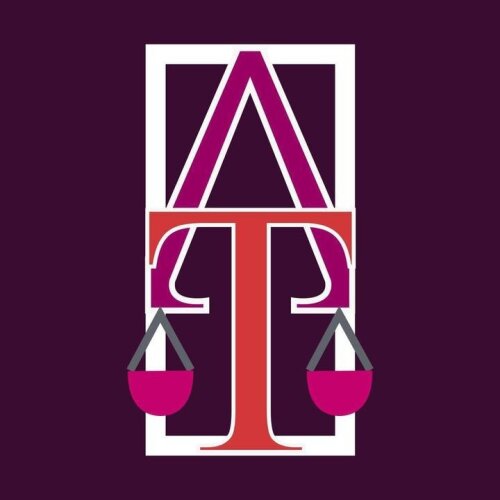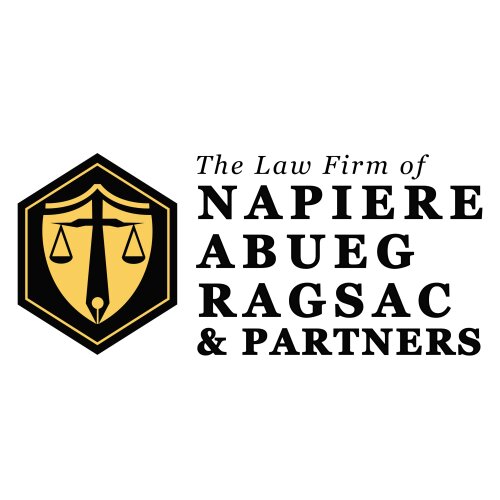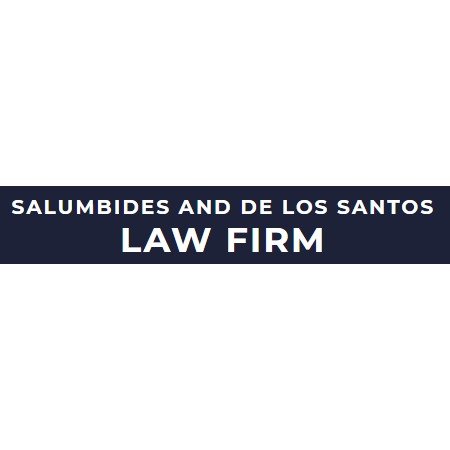Best International Trade Law Lawyers in Quezon City
Share your needs with us, get contacted by law firms.
Free. Takes 2 min.
List of the best lawyers in Quezon City, Philippines
About International Trade Law in Quezon City, Philippines
International Trade Law in Quezon City, Philippines, involves a complex set of rules, regulations, and agreements that govern trade activities between the Philippines and other countries. It encompasses various aspects such as import and export regulations, tariffs, trade agreements, customs procedures, and dispute resolution. This field of law ensures that trade activities are conducted fairly and efficiently while complying with both local and international standards and agreements. Quezon City, being part of the National Capital Region, is an important hub for trade activities, contributing significantly to the country's economy.
Why You May Need a Lawyer
There are several situations where you may require legal help in International Trade Law:
- Import/Export Compliance: Ensuring that your business adheres to the regulations and standards imposed on goods entering or leaving the Philippines.
- Tariff Classification: Managing and negotiating duties imposed on imported goods to minimize costs and ensure compliance.
- Trade Disputes: Resolving issues with trading partners, such as contract breaches or underperformance.
- Customs Issues: Handling detentions or seizures of goods at customs due to non-compliance or disputes.
- Trade Agreements: Understanding and leveraging trade agreements like ASEAN Free Trade Area (AFTA) for business benefit.
Local Laws Overview
In Quezon City, like the rest of the Philippines, international trade activities are primarily governed by the Customs Modernization and Tariff Act (CMTA), which lays out procedures for the import and export of goods. The Anti-Dumping Act, Safeguard Measures Act, and the Intellectual Property Code are also integral components of the legal framework. Regulatory bodies such as the Bureau of Customs and the Department of Trade and Industry oversee compliance with these laws, ensuring that trade is conducted within the legal parameters set by international and regional agreements.
Frequently Asked Questions
What is the role of the Bureau of Customs in international trade?
The Bureau of Customs is responsible for administering international trade laws, collecting import duties and taxes, and ensuring compliance with import and export regulations.
What documentation is required for importing goods into the Philippines?
Common documents include the bill of lading, commercial invoice, packing list, import license, and certificate of origin, among others, depending on the product type.
How are customs duties calculated?
Duties are generally calculated based on the tariff classification of the goods, the value of the goods, and the applicable rates as per the Philippine Customs Tariff Finder.
What are trade agreements, and how do they affect businesses?
Trade agreements are treaties between two or more countries that facilitate trade by reducing tariffs and other trade barriers. They can provide benefits such as reduced costs and easier market access.
What should I do if my goods are detained by customs?
If your goods are detained, it is essential to understand the reason and provide the necessary documentation or legal assistance required to resolve the issue.
What is the significance of the ASEAN Free Trade Area (AFTA) for businesses in Quezon City?
AFTA provides Filipino businesses with reduced tariffs and expanded market access to member countries, enhancing competitiveness in the ASEAN region.
How can I ensure compliance with the Anti-Dumping Act?
Monitoring pricing practices and ensuring fair market value sales help in compliance. Consulting with a lawyer ensures adherence to detailed legal requirements.
What recourse do I have in a trade dispute?
Trade disputes can be handled through collaborative negotiations, mediation, arbitration, or litigation, depending on the severity and nature of the conflict.
How do intellectual property laws affect international trade?
IP laws protect trademarks, patents, and copyrights. Violating these rights can lead to legal disputes and penalties, affecting trade activities.
Are there specific industries that have additional import/export regulations?
Yes, industries such as pharmaceuticals, electronics, and food products may have additional requirements like health certifications, safety standards, and compliance with specific industry rules.
Additional Resources
For more information on International Trade Law, you may refer to the following resources:
- Bureau of Customs website for updates on customs policies and procedures.
- Department of Trade and Industry for guidance on trade agreements and business regulations.
- Philippine Exporters Confederation for support and advocacy for export businesses.
- World Trade Organization for global trade standards and agreements.
Next Steps
If you require legal assistance in International Trade Law, it is advisable to:
- Document your concerns or issues clearly to provide your lawyer with a comprehensive understanding of the situation.
- Seek recommendations for reputable law firms or lawyers specializing in International Trade Law in Quezon City.
- Prepare all necessary documents related to your trade activities, such as contracts, correspondence, and regulatory filings, before consulting a lawyer.
- Consider attending seminars or webinars by trade bodies to better understand the nuances of International Trade Law.
- Stay updated with any changes in laws or trade agreements that may impact your business.
Taking these steps can help you navigate the complex legal landscape of international trade and safeguard your business interests effectively.
Lawzana helps you find the best lawyers and law firms in Quezon City through a curated and pre-screened list of qualified legal professionals. Our platform offers rankings and detailed profiles of attorneys and law firms, allowing you to compare based on practice areas, including International Trade Law, experience, and client feedback.
Each profile includes a description of the firm's areas of practice, client reviews, team members and partners, year of establishment, spoken languages, office locations, contact information, social media presence, and any published articles or resources. Most firms on our platform speak English and are experienced in both local and international legal matters.
Get a quote from top-rated law firms in Quezon City, Philippines — quickly, securely, and without unnecessary hassle.
Disclaimer:
The information provided on this page is for general informational purposes only and does not constitute legal advice. While we strive to ensure the accuracy and relevance of the content, legal information may change over time, and interpretations of the law can vary. You should always consult with a qualified legal professional for advice specific to your situation.
We disclaim all liability for actions taken or not taken based on the content of this page. If you believe any information is incorrect or outdated, please contact us, and we will review and update it where appropriate.

















